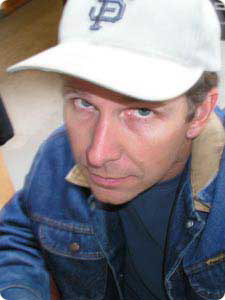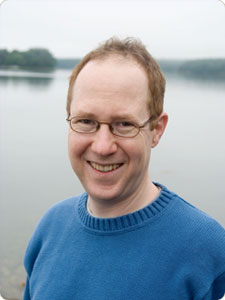Like many collaborations, ours began with conversations over food and drink about shared interests: fishing, beer, the outdoors, and the importance of place in our lives. It soon evolved into something much more complicated and meaningful.

Independent of one another, we have long explored the connections between place and time in our respective artwork and scholarship. For Mike, his interests as a photographer have taken him across the continent. In the “Changing Places” project, he has visited three exceptional American cities—Las Vegas, San Francisco, and New Orleans—over the past seven-plus years. All three cities are built on unstable ground, threatened by earthquakes or hurricanes or drought. And each of them has a unique subculture, nurtured in response to each city’s volatile location. Likewise, in his first book, Matt explored the environmental history of Seattle, another iconic American city. In his research and writing, he discovered how the century-long interplay between environmental change and social inequality yields new ways to reconsider the interdependence between nature and culture in that most unnatural of places: the city. What unites our divergent work is our shared interest in seeing nature in unexpected places and unexpected ways.
Our project is also an attempt to make sense of our backyard geography. Like so many Americans, we are not from where we live now. Mike spent his formative years in upstate New York before moving to western Massachusetts, Rio de Janeiro, New Haven, and San Francisco before coming to Maine. A native Utahan, Matt had lived in Berkeley, Oakland, and Seattle prior to Brunswick. In the Maine idiom, both of us are “from away,” yet both of us are raising families here. Maine is our home. And in our minds, there is no better way to become native to this place than exploring our nearby river, the Androscoggin.

Through our shared and solo journeys on the Androscoggin, we are learning much about Maine, this river, and how collaborations can yield new ways of seeing the world around us. The opportunity to break out of our typical professional channels—to record oral histories together, make and present multimedia presentations combining images and audio, try our hand at creative writing, to learn new photographic techniques—is a rare gift. The chance to share our discoveries, professional and personal, with diverse audiences across Maine only makes the work that much more rewarding.
Ultimately, we hope that our collaboration, like all partnerships, yields something larger than our own ambitions and efforts. We believe that our project might provide a refreshing, even iconoclastic take on the stale debates over environmental protection and economic progress that afflict Maine and our entire nation. Take the timing of our Bowdoin College Museum of Art exhibition in the summer of 2012, which coincides with the 40th anniversary of the Clean Water Act. Authored by U.S. Senator Edmund S. Muskie, a Rumford native, the Act was supposedly inspired by Muskie’s own local river: the Androscoggin. Yet four decades after this landmark legislation, while dams are coming down on the Penobscot and the stretches of the York might become an official Wild and Scenic River, the Androscoggin remains overlooked and largely unloved. Perhaps in its neglect, however, the Androscoggin might suggest a more complex, humble, and perhaps more sustainable way to consider a new ethic of place suitable for a world facing enormous environmental and social changes.
Our project is an expedition to rediscover the great nearby. To paraphrase the pre-Socratic Greek philosopher Heraclitus, we never step into the same Androscoggin twice. The same is true of any waterway, any landscape. No matter where you live, there is a river or brook near your home, neglected and ignored, or perhaps another waterway long ago, churning your childhood memories. We all have a backyard river and the Androscoggin is now ours.
We invite you to join us on the journey.
Michael Kolster, Associate Professor of Art
http://michaelkolster.com/
Matthew Klingle, Associate Professor of History and Environmental Studies